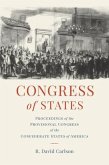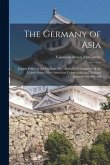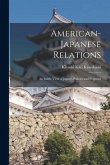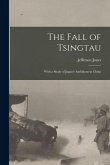Over seventy-five years have passed without any changes in the Japanese Constitution. A similar length of time has elapsed without the resolving of small island disputes with three of Japan's neighbors. The United States is involved in all of these protracted issues. The two sets of problems are: (1) revision of the status of the emperor and Article 9 with its war renunciation clause, and (2) island disputes with Russia, South Korea, and China. Individuals and organizations engaged the planning, formulation, and implementation of policies are discussed, including the prospects for change. The resolution of these problems will go a long way in determining the nature of the move and the direction Japan takes, and what role it will play in the global community.
Hinweis: Dieser Artikel kann nur an eine deutsche Lieferadresse ausgeliefert werden.
Hinweis: Dieser Artikel kann nur an eine deutsche Lieferadresse ausgeliefert werden.








